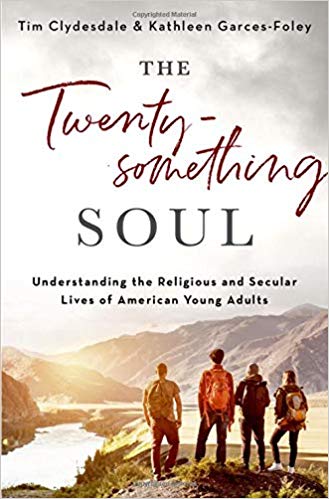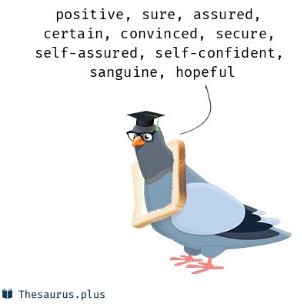
Pampered, Religiously Indifferent and Other Lies about Young Adults
Often when the subject of young adults as a demographic arises, we hear negative descriptors like “snowflakes” and “pampered” and “religiously indifferent.” But are these actually true of most young people in the US today? Researchers Tim Clydesdale and Kathleen Garces-Foley in their new book The Twentysomething Soul: Understanding the Religious and Secular Lives of American Young Adults (Oxford University Press) say no. And they provide hard data to back up their assertion.
The authors, a professor of sociology and a professor of religious studies, interviewed more than 200 young adults, which they added to findings from an existing national survey of 1,880 twentysomethings. Their process and conclusions, including summary graphs in most chapters, make up the optimistic (if rather academic) story that is The Twentysomething Soul.
The book begins with “Meet the Twentysomethings,” a sampling of narratives highlighting individuals representative of Evangelicals, Roman Catholics, Mainline Protestants, and “Nones.” This they follow with a chapter titled, “Young Adulthood and Religion” in which they explain core economic and cultural factors that have contributed to changes in emerging adulthood. For example, the secure jobs with living wages and good benefits that US manufacturing provided for their parents’ generation have vanished. The global economy sent these jobs to developing nations, where companies could find cheaper labor and fewer regulations. “In its place is a service economy that largely offers two kinds of work: low-skill, low-wage jobs or high-skill, high-wage jobs” (21). So young adults have to work more years to gain the same levels of autonomy their parents had, and if they want a faster path to the higher-wage jobs, they may have to assume more student debt—which may mean living longer in the parents’ basement.
And of course such a cultural shift affects church involvement. For example, medium- and high-wage earners have an easier time showing up on a Sunday morning than the low-wage earner, who may not be given time off on a weekend to worship. So, a lack of regular church attendance, often interpreted as spiritual malaise, may not reflect the actual value a worker places on the faith community.
The researchers found that young-adult Evangelicals (as compared with Catholics, Mainline Protestants and Nones) have the highest percentage of Black young adults. And Evangelicals are more represented by young adult females (56 percent) than men (44 percent). They are also less likely than their counterparts in other groups to have graduated from college (29 percent), while they are the most likely to be parents (28 parents). Meanwhile, Catholicism attracts the highest percentage of Hispanics and the fewest number of Blacks; while Mainline Protestantism draws a disproportionate share of White young adults (24).
After a separate chapter each on young adult Catholics, Mainline Protestants, Evangelicals, and Nones comes “Practical Postmoderns.” In it the authors state that “there are more American twentysomethings affiliated with Protestant and Catholic faith than there are persons of any age residing in the State of Texas.” If a capital in this Christian State were populated only with young adults who attend church regularly and prioritize spiritual growth, “the Committed City would have a population of 11.3 million twentysomethings, surpassing New York City’s population (8.5 million) by 2.8 million” (164).
Certainly some young adults sideline spirituality or reject religion outright, as do those in any demographic. But many twentysomethings—far more than is generally thought—embrace faith and live lives of prayer, are committed to Christian community, and serve the needy in their communities. Even the “Nones” are not necessarily atheists or non-religious. Many of them are spiritual seekers who simply don’t fit neatly into the Evangelical, Catholic, or Mainline Christian categories.
Of special relevance to Evangelicals is the finding that among twentysomethings, 3 out of 10 Americans identify with an Evangelical church or tradition; these young adults are the most religiously fervent of the four groups studied; 63 percent of those identifying as “Evangelical” report that their faith is important or very important; and they have the highest rates of church attendance.
Twentysomethings in the US are probably the most misunderstood and most maligned population group. This book contradicts that narrative with hard data. And the reality has implications for how one ministers to and even talks about young adults, whether single or married, childless or with kids. Because the “popular complaints about young adults shirking their adult responsibilities, abandoning their religious roots, and reveling in their amoral lives” (49) is untrue. In fact, “strongly committed twentysomethings are…as prevalent now as they were four decades ago.” This book replaces falsehood with truth and both corrects faulty conclusions about young adults and provides documentation that demonstrates who they actually are.


